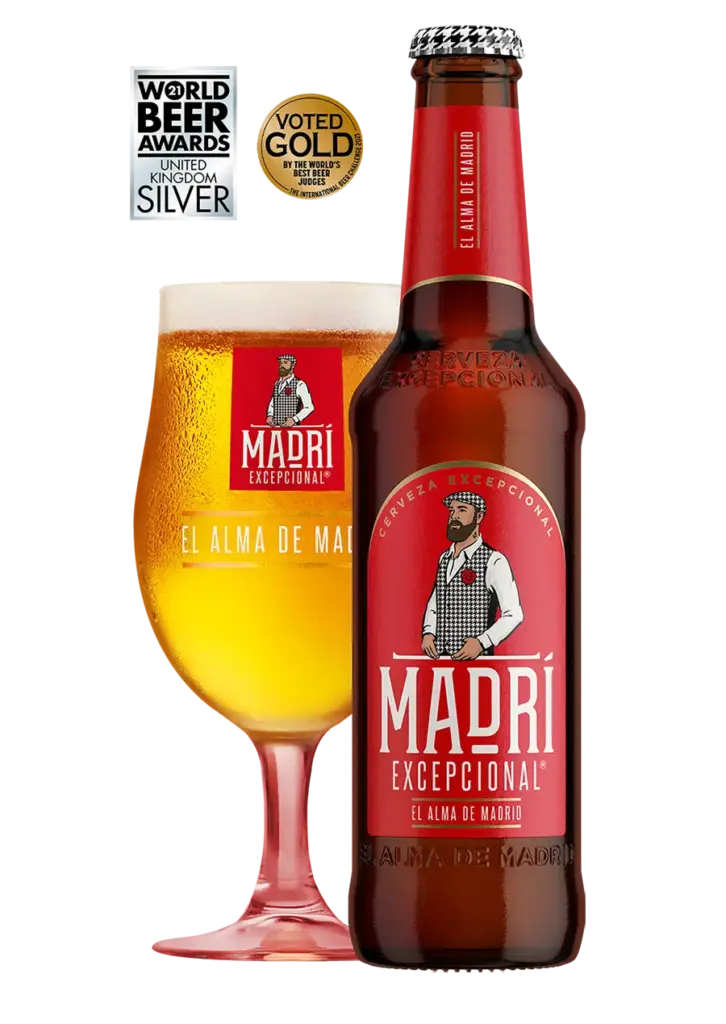Marketing
Faking It: Grocery Giants Accused of Deceiving Consumers
This article highlights grocery retailers and brands that have been accused of misleading consumers in recent years.
Beer brand Madrí has faced backlash for its questionable origins, as this seemingly Spanish beer is actually brewed in Yorkshire. However, it’s not the only major brand under scrutiny.
Spanish or Span-ish?
The Molson Coors-owned Madrí, which promotes itself as “the soul of Madrid,” has been criticized for being brewed in Yorkshire rather than Spain. Since its launch in UK pubs in 2020, the brand has rapidly gained popularity, reaching annual sales of £93.3 million in 2023, according to NIQ, effectively taking market share from competitors.

Courtesy of Madri
In June, Estrella, another Spanish beer brand, launched a campaign targeting “big British-brewed brands masquerading as Spanish beers.” The campaign, which included digital displays and social media efforts under the slogan “Spanish not Span-‘ish,’” aimed to raise awareness of genuine Spanish authenticity. Estrella Galicia’s CEO, Aitor de Artaza, called out Madrí, stating, “There is a lack of transparency because they use a big famous city in Spain, but they don’t produce here. This is confusing for the consumer,” as reported by the Telegraph.
In response, Molson Coors asserted that Madrí was created in partnership with Spanish craft brewer La Sagra.
Sourfaux
Lidl faced criticism late last year when The Real Bread Campaign accused it of misleading consumers about its “sourdough rye” loaf. The retailer was forced to rename its sourdough crusty rye bloomer after a shopper revealed that the product was primarily made from wheat flour (56%) with baker’s yeast. Although the Advertising Standards Authority ruled that Lidl did not breach any rules—due to the absence of a fixed legal definition of sourdough bread in the UK—the Real Bread Campaign escalated the issue to the trading standards department of the London Borough of Bexley.
Other grocery giants have also made bread-related missteps. In June, Sainsbury’s, Lidl, Co-op, and Tesco were all accused of making allegedly misleading bakery marketing claims, suggesting that their baked goods were “freshly made every day” and “freshly baked bread,” which campaigners from Sustain claimed were untrue.
Fake Farms
In 2017, major grocery retailers including Tesco, Aldi, Asda, and Lidl were accused of using “fake farm” branding for their own-brand meat products, misleading consumers in the process. Food charity Feedback threatened legal action against Tesco over its “fake” Woodside Farms label, which was used for its value pork range starting in 2016. The charity supported a genuine farm called Woodside Farm and demanded that Tesco drop the misleading name.
Courtesy of Envato
Alongside Woodside Farms, Tesco was found to have several value ranges with fictitious British-sounding names designed to appeal to local consumers while the products were actually imported. Asda, Aldi, Lidl, and M&S faced similar accusations regarding their value lines, such as Asda’s ‘Farm Store,’ Aldi’s ‘Wood Farm,’ Lidl’s ‘Birchwood Farm,’ and M&S’s ‘Scottish Lochmuir’ and ‘Oakham,’ none of which represented real farms.
Since then, it appears that Tesco continues to operate a value range under the branding “Woodside Farms,” while Aldi has rebranded its “Wood Farm” line to “Nature’s Pick.” Earlier this year, Lidl apologized for outdated references on its website regarding its interactions with MPs on the government’s Environment, Food & Rural Affairs Committee and confirmed that it no longer uses “fake farms.”